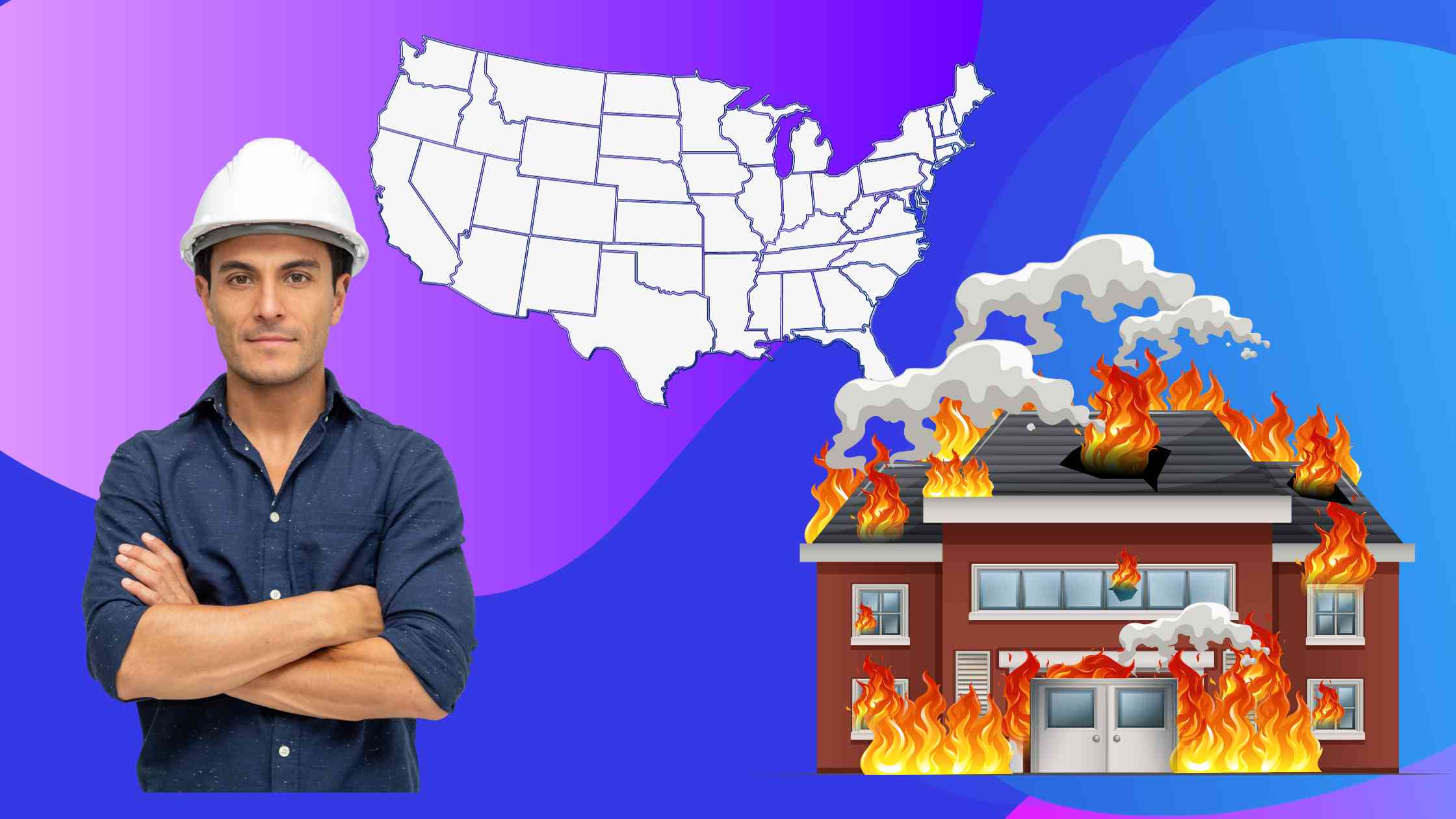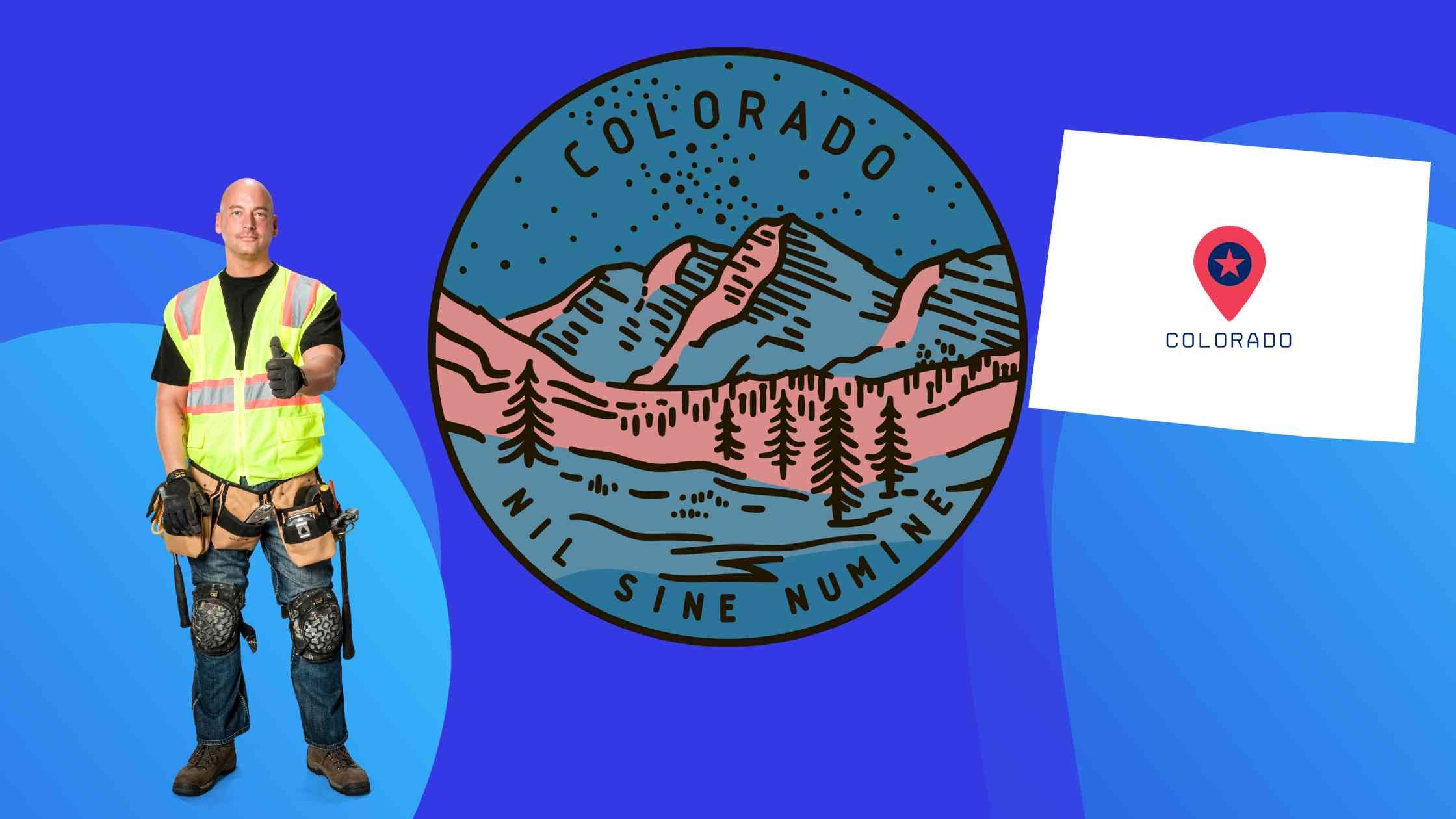
Fire Protection Contractor License in New York

The process for obtaining a fire protection contractor license in the state of New York involves compliance with both state and local regulations, depending on the specific jurisdiction. The license is regulated by the New York State Department and, in cities like New York City, by the Department of Buildings (DOB).
Specific Licensing Process for New York:
1. Education and Experience:
Applicants must demonstrate relevant education and experience in the field of fire protection. This includes practical work and, in some cases, supervisory experience.
2. Certification and Exams:
Certification through recognized organizations like NICET is often a prerequisite, along with passing local exams that test knowledge of fire codes and safety standards applicable in New York.
3. Business License:
Businesses must be properly registered, and in some cases, a specific business license is required to operate in the state or city.
4. Liability Insurance:
Maintaining liability insurance that meets the minimum requirements set by the state or local jurisdiction is mandatory.
5. Additional Documentation:
Applicants may be required to submit proof of additional training, professional references, and a history of past projects.
Costs:
• Application and Exam Fees:
Application and exam fees vary by jurisdiction and license type but expect to pay hundreds of dollars in combined fees.
• Insurance:
Liability insurance costs depend on the size of the company, risk level, and selected coverage.
Relevant Contacts:
• New York State Department:
The primary contact point for information on state-level fire protection contractor licenses. Visit their website at www.dos.ny.gov or call (518) 474-4429.
• New York City Department of Buildings (DOB):
For city-specific regulations and licensing processes in New York City, consult www.nyc.gov/buildings or contact the DOB directly.
Fire Protection Contractor License in Puerto Rico
The process for obtaining a fire protection contractor license in Puerto Rico is regulated by the Department of State and the Bureau of the Puerto Rico Firefighters Corps. Requirements may vary slightly from those in the U.S. mainland.
Specific Licensing Process for Puerto Rico:
1. Education and Experience:
Applicants must provide evidence of relevant education and experience in the field of fire protection, which may include direct work experience and specific training programs.
2. Competency Exam:
A competency exam covering local fire protection regulations and safety practices must be passed.
3. Business License:
Companies must be registered with the Department of State as authorized businesses to operate in Puerto Rico.
4. Liability Insurance:
Adequate liability insurance that complies with jurisdictional requirements is necessary.
5. Additional Certifications:
Depending on the area of specialization, additional or specific certifications may be required.
Costs:
• Application and Exam Fees: Fees vary, but applicants should anticipate several hundred dollars for the application and exam costs.
• Insurance: The cost of insurance will depend on the necessary coverage and the chosen insurance provider.
Relevant Contacts:
• Puerto Rico Department of State: For general information on business and corporate licenses. Their website is www.estado.pr.gov, and it provides resources and contact information for applications and inquiries.
• Puerto Rico Firefighters Corps Bureau: For specific details on fire protection license requirements. You can visit their website for additional information or contact them directly for guidance.
Fire Protection License in Illinois

The state of Illinois maintains its own licensing requirements for fire protection contractors through the Office of the State Fire Marshal (OSFM). These requirements are designed to ensure that all contractors operate under the highest safety and efficiency standards.
Specific Licensing Process for Illinois:
1. Education and Certification:
Applicants must have relevant education in fire protection engineering or equivalent experience, along with appropriate certifications such as those offered by NICET.
2. Professional Experience:
A minimum amount of work experience in the field is required, which varies based on the level of the license being sought.
3. State Exam:
Contractors must pass a state exam covering knowledge of Illinois construction and fire prevention codes.
4. Insurance:
Contractors must have valid liability insurance with minimum amounts specified by the OSFM.
5. License Renewal:
Illinois requires licenses to be periodically renewed, which may include demonstrating continuing education.
Costs Associated with the License in Illinois:
• Application and Exam Fees:
Fees for applying and taking the exam may vary, but applicants should prepare to pay multiple fees that can total several hundred dollars.
• Insurance Costs:
Liability insurance costs vary based on coverage and the provider.
• Renewal Fees:
Licenses must be renewed regularly, and each renewal may incur a fee.
Relevant Contacts:
• Office of the State Fire Marshal (OSFM):
The primary contact point for licensing fire protection contractors in Illinois. Their website is www.sfm.illinois.gov, which provides detailed information on the licensing process.
• Division of Fire Prevention:
Within the OSFM, this division can provide specific assistance and guidance on licensing and insurance requirements. You can contact them through the information provided on the OSFM website.
Fire Protection License in Arizona

In Arizona, the licensing process for fire protection contractors is supervised by the Arizona Registrar of Contractors (ROC). The ROC requires contractors to meet specific standards to ensure safety and quality in fire protection services.
Specific Licensing Process for Arizona:
1. License Classifications:
Arizona offers different license classifications for various types of fire protection work. It is crucial to identify the correct classification that applies to the specific services your business provides.
2. Education and Experience:
Applicants must have experience in the field of fire protection, which may vary depending on the license classification. Relevant education may also be considered in place of some required experience.
3. Exam:
For certain classifications, applicants must pass an exam demonstrating their knowledge of construction and fire protection codes.
4. Liability Insurance:
Fire protection contractors are required to have liability insurance that meets the minimum amounts established by the ROC.
5. Business Documentation:
Applicants must provide business documentation, including proof of identification and, if applicable, a criminal background check.
Costs:
• Application Fee:
The application fee for a contractor license in Arizona ranges from approximately $80 to $200, depending on the license classification.
• Exam:
If an exam is required, applicants must pay an additional fee that varies by classification.
• Liability Insurance:
The cost depends on the selected coverage and insurance provider.
• License Renewal Fees:
Licenses must be renewed every two years, which involves a renewal fee.
Relevant Contacts:
• Arizona Registrar of Contractors (ROC):
The government entity responsible for regulating contractor licenses in Arizona. For more information on the licensing process and associated fees, visit their website at www.roc.az.gov or contact the ROC directly.
• Arizona Department of Insurance:
For specific questions about liability insurance requirements, visit www.insurance.az.gov.
Contractors must ensure compliance with all ROC requirements before starting their fire protection business in Arizona. Consulting up-to-date information directly from official sources is essential to remain compliant with regulations and operate legally in the state.
Fire Protection License Requirements in New Jersey

Obtaining a fire protection contractor license in New Jersey is a process regulated by the state’s Division of Fire Safety (DFS), which is part of the New Jersey Department of Community Affairs.
Specific Licensing Process for New Jersey:
1. Education and Experience:
Applicants must demonstrate relevant experience in the field of fire protection and, in some cases, complete specific education courses.
2. NICET Certification:
For some license categories, an appropriate level of NICET certification is required.
3. License Exam:
Applicants must pass a state exam covering fire protection codes and regulations specific to New Jersey.
4. Business Registration:
Business entities must be properly registered in the state and comply with all applicable commercial regulations.
5. Liability Insurance and Bonding:
Applicants are required to have liability insurance, and in some cases, bonding is also required.
Costs:
• Application Fee:
The application fee may vary, but applicants should expect to pay an amount between $100 and $300.
• License Exam:
The exam fee will also vary depending on the specific license category.
• Insurance and Bonds:
Costs associated with liability insurance and bonds will depend on the coverage and the provider.
Relevant Contacts:
• Division of Fire Safety (DFS):
For detailed information about the licensing process and specific requirements, visit their website at www.nj.gov/dca/divisions/dfs or contact them directly.
• New Jersey Department of Community Affairs (DCA):
Offers additional resources and assistance with questions about business registration and commercial requirements. Visit www.nj.gov/dca for more information.
Fire Protection Contractor License in Georgia

In Georgia, obtaining a fire protection contractor license is regulated by the Georgia State Construction Industry Licensing Board, specifically the Division of Fire Protection Contractors.
Specific Licensing Process for Georgia:
1. Education and Experience:
Applicants are expected to have a combination of education and experience in the field of fire protection. The exact nature of these requirements may vary depending on the license category.
2. Certification:
As in other states, professional certifications such as those offered by NICET may be required.
3. License Exam:
Applicants must pass an exam covering technical knowledge and specific codes related to fire protection.
4. Liability Insurance:
Contractors are required to have liability insurance that meets the minimums established by the licensing board.
5. Documentation:
Applicants must provide documentation supporting their license application, including proof of experience, references, and financial background checks.
License Costs in Georgia:
• Application Fee:
Application fees for a fire protection license can vary, but applicants should be prepared to pay amounts generally ranging between $100 and $200.
• Exam Fee:
Exam fees are additional to the application fee and vary depending on the license category and the testing provider.
• Insurance:
The cost of liability insurance will depend on the coverage and the selected insurance provider.
Relevant Contacts:
• Georgia State Construction Industry Licensing Board:
For specific information about the fire protection licensing process, visit their website at sos.ga.gov, where you can find contact information and additional resources.
• Division of Fire Protection Contractors:
As part of the licensing board, this division is the specific body for fire protection contractors. You can communicate with them using the contact information provided on the licensing board’s website.
Fire Protection Contractor License in Colorado
In Colorado, fire protection contractor licenses are administered by the Division of Fire Prevention and Control (DFPC) within the Colorado Department of Public Safety, as well as by specific local authorities in some jurisdictions.
Specific Licensing Process for Colorado:
1. Required Certifications:
Applicants must hold relevant certifications, such as those from NICET, depending on the nature of the fire protection services they will offer.
2. Experience:
Significant experience in the installation, inspection, and maintenance of fire protection systems is required.
3. License Exam:
Some jurisdictions in Colorado may require applicants to pass a licensing exam that covers specific technical knowledge and fire protection regulations.
4. Liability Insurance:
Applicants must obtain and maintain liability insurance that meets state and/or local requirements.
5. Business Registration:
Businesses must be registered with the state of Colorado and comply with all applicable commercial regulations.
Costs:
• Application Fees:
The application fee for a contractor license can vary depending on the classification and scope of the services offered.
• License Exam:
If an exam is required, an associated fee may also apply, which can vary.
• Insurance:
The cost of liability insurance depends on the necessary coverage and the selected insurance provider.
Relevant Contacts:
• Division of Fire Prevention and Control (DFPC):
For detailed information on the licensing process for fire protection contractors, visit www.colorado.gov/dfpc or contact the division directly.
• Colorado Department of Regulatory Agencies (DORA):
For additional information on business registration or commercial regulations, DORA can be a helpful resource. Their website is www.dora.colorado.gov.
Fire Protection Contractor License in Washington

In Washington State, the fire protection contractor license is managed by the Washington State Office of the Fire Marshal in collaboration with the Department of Labor & Industries (L&I), which regulates worker safety and general contracting.
Specific Licensing Process for Washington:
1. Fire Protection Worker Certification:
Individuals working with fire protection systems must obtain certification as a Fire Protection Worker through the Office of the Fire Marshal.
2. Contractor Registration:
Businesses must register as contractors in Washington, which includes obtaining a contractor registration number.
3. Liability Insurance and Bonding:
Liability insurance and a contractor bond are required as stipulated by L&I.
4. Business License:
A state business license must also be obtained to legally operate in Washington.
5. Continuing Education:
To maintain certification, continuing education courses on fire safety and protection technologies may be required.
Costs:
• Fire Protection Worker Certification:
Fees for initial certification and renewal may vary but are generally modest.
• Contractor Registration:
There is a fee associated with contractor registration and the required bond, which may amount to several hundred dollars.
• Business License:
The business license also carries a fee that must be paid to the state.
• Insurance:
Liability insurance costs depend on the provider and the level of coverage selected.
Relevant Contacts:
• Washington State Office of the Fire Marshal:
For information on certification and fire protection worker regulations, visit www.wsp.wa.gov.
• Washington State Department of Labor & Industries (L&I):
For matters related to contractor registration and insurance, visit www.lni.wa.gov.
• Washington State Department of Revenue:
For state business licensing and related topics, visit dor.wa.gov.
Fire Protection License in New Mexico

In New Mexico, the licensing process for fire protection contractors is regulated by the Construction Industries Division (CID) of the Regulation and Licensing Department. This process ensures that contractors meet the necessary standards for public safety.
Specific Licensing Process for New Mexico:
1. License Classification:
New Mexico offers various contractor license classifications, and it is necessary to determine which one aligns with the specific services your fire protection business will offer.
2. Experience and Exams:
Applicants must have experience in the field of fire protection and pass specific exams for the license classification they are applying for.
3. Liability Insurance and Bonding:
Contractors must have a bond and liability insurance with specified minimum coverages.
4. Continuing Education:
Continuing education may be required to maintain an active license.
5. Business Registration:
Businesses must be registered and comply with state regulations.
Costs:
• Application and Exam Fees:
Fees for applications and exams vary but generally amount to around $300.
• Insurance and Bonds:
The cost of liability insurance and bonds varies depending on coverage and the provider.
Relevant Contacts:
• New Mexico Regulation and Licensing Department, Construction Industries Division (CID):
This department is responsible for contractor licenses and can provide all the necessary information about the license application process. Their website is www.rld.state.nm.us/construction, where additional resources and contact details can be found.
When considering starting or expanding fire protection services in New Mexico, it is crucial for contractors to familiarize themselves with CID requirements and maintain all licenses and insurance up-to-date to comply with state laws and protect their clients and businesses.
North Carolina

In North Carolina, fire protection contractor licenses are regulated by the Office of the State Fire Marshal, which is part of the Department of Insurance. Contractors must meet specific requirements to ensure they are qualified to install and maintain fire protection systems.
Specific Licensing Process for North Carolina:
1. Qualifications and Certifications:
Applicants must have appropriate qualifications, which may include certifications such as those offered by NICET, and demonstrate knowledge and skills in fire protection systems.
2. Required Experience:
Contractors are expected to have significant experience in the field, which must be documented and verified.
3. License Exam:
Applicants must pass a state licensing exam that evaluates knowledge of fire codes and installation and maintenance techniques.
4. Liability Insurance:
Liability insurance with a minimum coverage specified by state law is required.
5. Business License:
Businesses must be registered and hold a valid license to operate in North Carolina.
Costs:
• Application Fees:
Application fees vary, but contractors should anticipate costs ranging between $100 and $300.
• License Exam:
There is a fee for taking the licensing exam, which also varies.
• Liability Insurance:
Insurance costs vary depending on the coverage and the selected insurance provider.
Relevant Contacts:
• Office of the State Fire Marshal:
For details about contractor licensing and exam requirements, visit www.ncdoi.com/OSFM.
• North Carolina Department of Insurance:
For questions about liability insurance and other insurance requirements for contractors, visit www.ncdoi.com.
Contractors interested in operating in North Carolina must ensure they understand all requirements and follow the process established by the Office of the State Fire Marshal to obtain and maintain their license.
Fire Protection Contractor License in Pennsylvania

In Pennsylvania, the regulation and licensing of fire protection contractors may vary depending on the location, as there is no unified state licensing process for this specialty. Instead, licenses are often managed at the city or county level, with specific requirements established by local authorities.
Specific Licensing Process for Pennsylvania
1. Certification and Education:
Many jurisdictions require fire protection contractors to have specific training and certifications, such as those from NICET.
2. Experience:
Practical experience in the design, installation, and maintenance of fire protection systems is essential and often required for licensure.
3. Local Exams:
Some municipalities may require contractors to pass local exams that test knowledge of relevant building and fire codes.
4. Contractor Registration:
While there is no specific state-level license, contractors must register and obtain a local license in the jurisdiction where they plan to work.
5. Liability Insurance:
Maintaining liability insurance is necessary to protect against claims related to the installation and maintenance of fire protection systems.
Costs:
• Registration and Local Licensing Fees:
Costs for obtaining a local license can vary significantly, but contractors should be prepared to pay fees ranging from a few dollars to several hundred.
• Exam:
If an exam is required, there may be a fee associated with taking it.
• Insurance:
The cost of liability insurance will depend on the required coverage and the chosen insurance provider.
Relevant Contacts:
• Local Municipality or County Offices:
For specific information on licensing and registration requirements in a particular city or county, contractors should contact the corresponding local office directly.
• Pennsylvania Department of Labor & Industry:
For general information on construction and contracting regulations in Pennsylvania, visit www.dli.pa.gov.
Licenses for Fire Protection Contractors in Nevada

The licensing process for fire protection contractors in Nevada is managed by the Nevada State Fire Marshal Division in collaboration with the Nevada State Contractors Board. This agency is responsible for granting licenses and enforcing regulations for contractors in the state.
Specific Licensing Process for Nevada:
1. License Classification: Contractors must obtain the correct license classification corresponding to the fire protection services they will provide.
2. Experience and Examination: Applicants are required to have considerable field experience and must pass an exam that demonstrates their knowledge and skills in fire protection.
3. Liability Insurance and Bond: Contractors must maintain liability insurance and a bond that meets the minimum amounts required by the state of Nevada.
4. Business License: In addition, it is necessary to obtain a state business license to legally operate in Nevada.
5. Continuing Education: Continuing education courses may be required to maintain an active license.
Costs:
• Application Fee: The application fees for contractor licenses in Nevada may vary. Typically, there is a base fee that can range from several hundred dollars.
• Exams: Fees for the required exams may also vary and should be factored into the total cost of obtaining the license.
• Insurance and Bond: The cost of the bond and liability insurance will depend on the provider and the level of coverage selected.
Relevant Contacts:
• Nevada State Fire Marshal Division: Offers information and resources regarding specific licensing requirements for fire protection. Visit their website at fire.nv.gov.
Conclusion
Upon completing this guide to obtaining contractor licenses for fire protection in various states, it’s clear that preparation, precision, and commitment to excellence are not just recommendations but essential requirements. Each state presents its own set of challenges and requirements, and navigating them successfully demonstrates the seriousness and professionalism of your business.
At NegocioListo, we deeply understand the journey of establishing and expanding a service business in the United States. That’s why we’re here to support you at every stage of your business journey.
From helping you create your business identity or website to producing promotional materials and guiding you through the process of forming your LLC, NegocioListo is your trusted partner on the road to success.
Don’t let the complexity of the process discourage you. With NegocioListo, you have an ally providing the tools and knowledge to start your business with confidence.









